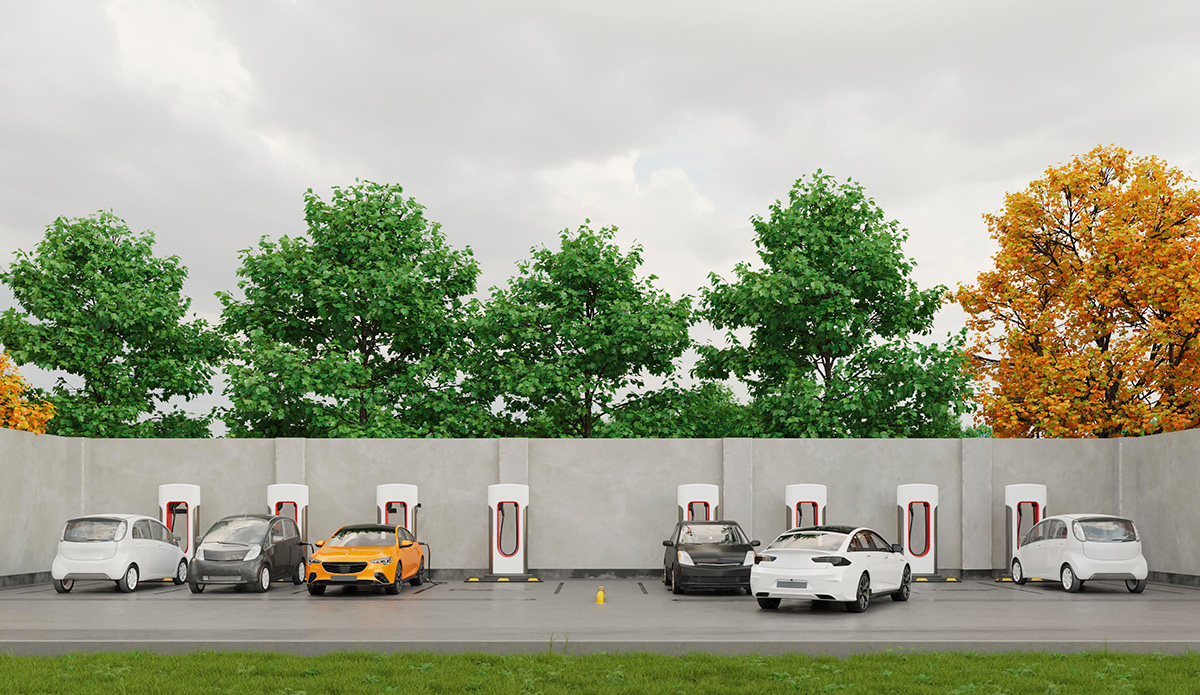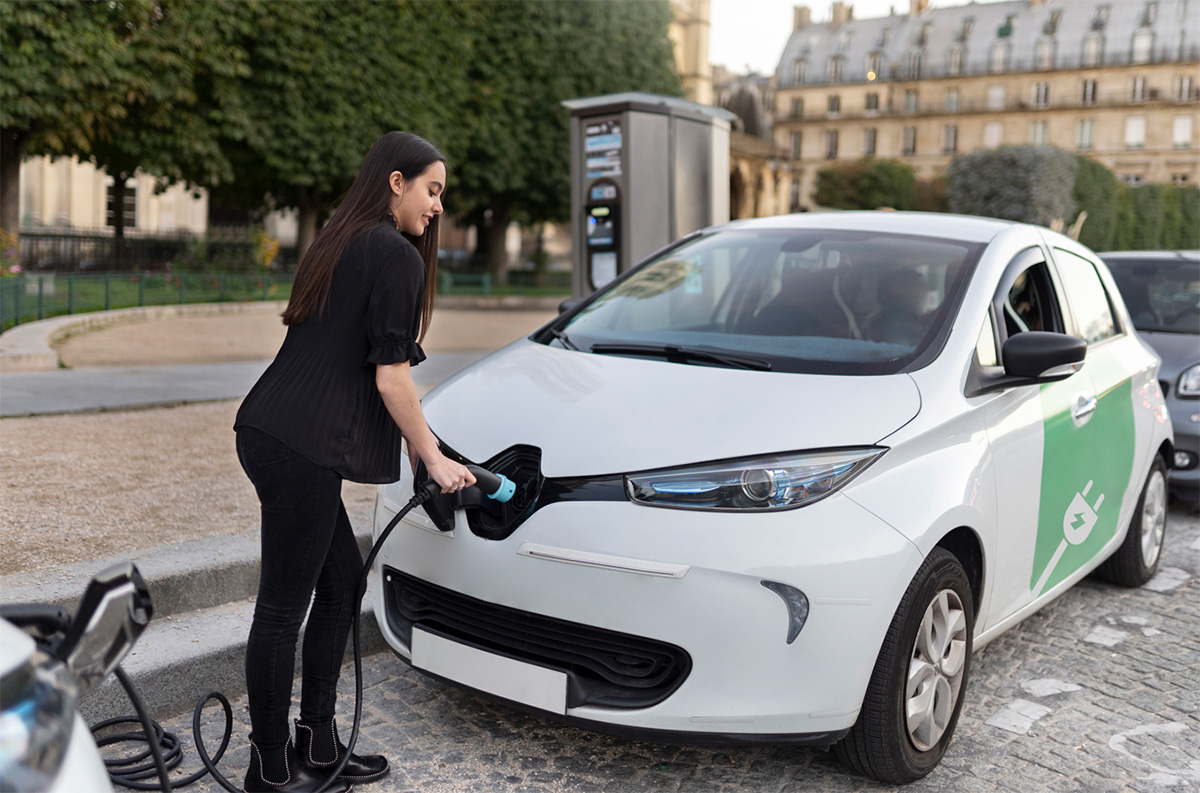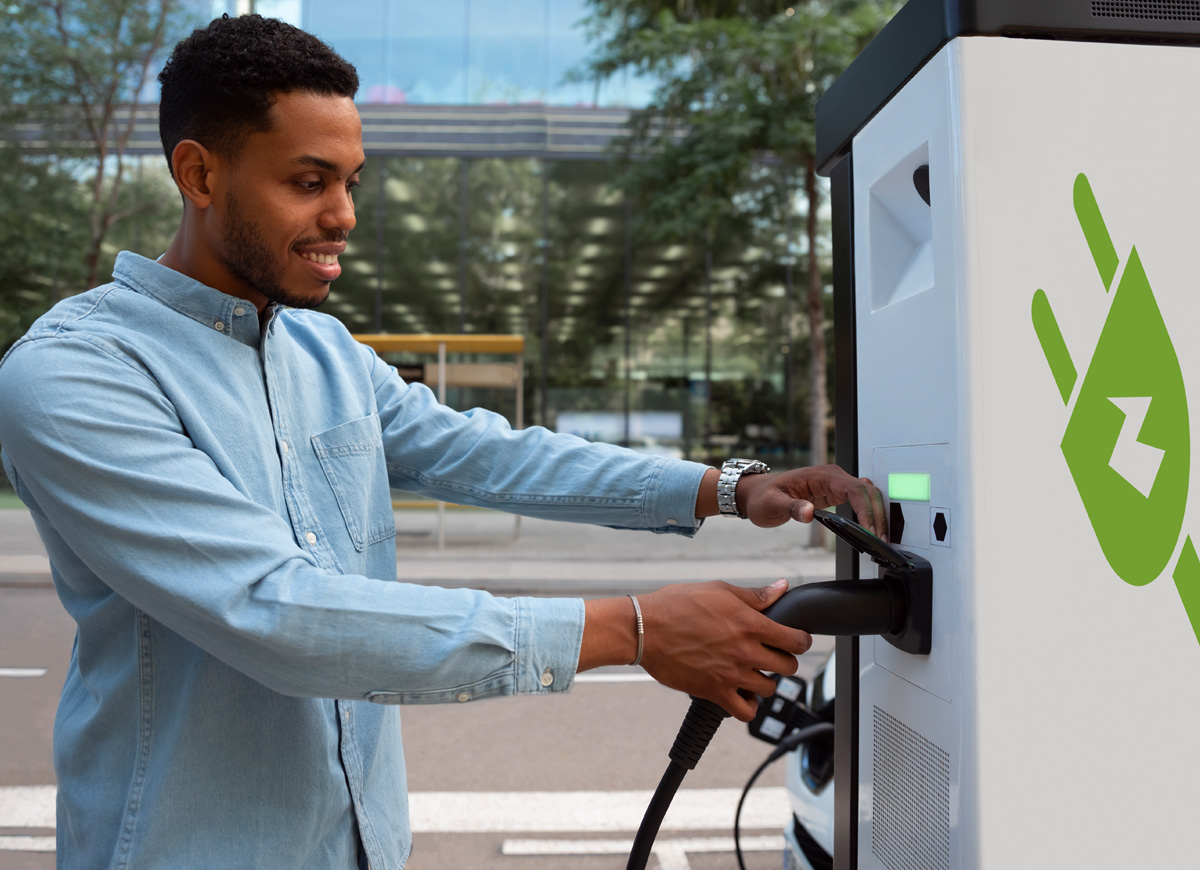Summary
Choosing the right EV charger for your business involves several factors beyond the cost of installation alone. This article examines the various aspects and benefits of commercial EV charger installation.
Table of Contents
Choosing the Right EV Charger for Your Business in Los Angeles
Choosing the right EV charger for your business depends on many factors, the most significant of which is the installation cost. Electric car chargers are costly, so you must ensure that the charger you choose is right for your business needs and budget.
This article examines the types of EV chargers available and how they might fit your business. It also guides you through choosing the right charger and the entire installation process for Los Angeles business owners.
If you need further clarification, contact Tercero Inc. for expert advice.
Introduction to EV Charger Installation for Businesses
The electric vehicle (EV) revolution is here. Installing EV chargers at your business has become necessary, not just allowing employees to recharge their cars while at work. But also, to improve foot traffic from customers, create an additional income stream, and set yourself apart from competitors.
While installing EV chargers can be cost-prohibitive to small businesses, the advantages to your business outweigh the costs. Also, many government grants and concessions can help you offset the initial installation cost. Some of them are:
- Federal Tax Credit for Commercial EV Chargers: There is a 30% federal tax credit for installing commercial EV charging stations. The maximum credit is $100,000 per unit, and equipment and installation costs are eligible.
- National Electric Vehicle Infrastructure (NEVI) Formula Program: Eligible projects can secure funding for up to 80% of the cost of installing commercial electric vehicle (EV) charging stations.
*Quick note. We have seen these grants be rather difficult to obtain for private companies so don’t get overly excited about them just yet.
Why Your Business Needs an EV Charger
There are several reasons why your business needs an EV charger. They are:
1. Increased Foot Service and Customer Loyalty
A crucial advantage of EV charging stations is that they increase foot traffic to your establishment. Furthermore, it is probable that EV users will spend more money on other items as they spend more time at the spot (sometimes more than an hour) charging their cars.
2. Additional Revenue Stream
Commercial electric vehicle charging stations are a successful investment. The expanding demand for electric vehicles, combined with a growing awareness of the need for sustainable mobility, has necessitated the development of accessible charging infrastructure. Businesses that install charging stations on their premises might anticipate increased revenue from the investment.
Businesses might charge per kilowatt hour of electricity consumed or for the time connected to the charging station.
3. Environmental Impact and Corporate Responsibility
Installing EV charging stations in the workplace can help companies reduce their environmental impact while promoting corporate social responsibility. The charging infrastructure demonstrates a commitment to a greener environment and encourages staff to use electric vehicles, lowering greenhouse emissions.
4. Employee Retention
Offering EV charging stations in the workplace demonstrates a commitment to a greener future and provides a practical advantage to the workers. This is useful for employees who need consistent access to charging stations or faster chargers.
5. Government Incentives for Commercial Charging Stations
Businesses that host commercial EV charging stations are eligible for incentives and assistance from government initiatives. These schemes aim to increase EV adoption while lowering the expenses associated with EV charging installation.
Types of EV Chargers Available for Businesses

Understanding the various types of EV chargers will help you decide which one is best for your business.
1. Level 1 Chargers: Slow, basic option
Level 1 chargers are the most basic choice. They need a 120-volt outlet and are the slowest charging choices, taking approximately 20 hours to charge a vehicle completely. This charger type is appropriate for businesses where customers park their automobiles for extended periods, such as airports with overnight parking or motels.
2. Level 2 Chargers: Ideal for businesses
Level 2 chargers provide higher power. They employ 240-volt outlets, which cut charging time by more than half but will oftentimes be installed in a more permanent manner instead of plugging it into an outlet. A level 2 charger typically takes about eight hours to charge an EV battery completely. These chargers suit organizations where customers expect rapid charging, such as retail malls, office buildings, and parking structures.
3. DC Fast Chargers: Best for businesses with high-volume traffic
Direct Current (DC) Fast Chargers are the most rapid EV charging solutions. They can fully charge an electric vehicle battery in 30 minutes. These chargers are ideal for establishments where consumers do not remain long, such as eateries and gas stations. They are also suitable as highway rest stations for long-distance travelers.
Factors Affecting EV Charger Installation Costs in Los Angeles
Several factors come into play when considering the cost of installing an EV charging station in Los Angeles. Some of them are:
1. Type of Charger Chosen (Level 2 vs. DC Fast)
The type of charger you choose significantly impacts the cost of installation. The faster and more powerful it is, its installation will be more costly. For instance, level 2 and DC fast chargers are better suited for commercial purposes but need additional infrastructure to support operations. These chargers often require infrastructure upgrades prior to installation.
2. Location and Accessibility
The distance between your electrical panel and the charger can affect installation costs. The cost will increase if the distance is large enough to require extra wiring or trenching.
3. Electrical Panel Upgrades
Electrical panels handle load distribution in your building. If your panel cannot sustain your selected charger, an electrician will upgrade it to manage the overall load, raising the installation fee.
4. Permitting and Compliance with Local Regulations
Local building codes and restrictions can affect installation costs. Some places have rigorous permit requirements, which raise the cost and may also extend the installation time.
5. Labor Costs in Los Angeles
The availability of skilled technicians and contractors can also affect the installation cost. Hiring experienced hands and the complexity of the installation can also raise the price. This could also include using union workers vs. non-union workers.
How to Choose the Right Charger for Your Business
Selecting a suitable EV charger for your business is not a one-size-fits-all affair. It requires thoughtful consideration of your needs and circumstances. Consider the following factors:
1. Business Type and Customer Volume
The nature of your business and the number of customers you attract will determine the type of charger you choose. For instance, if you’re a retail store with many customers, you should invest in DC fast chargers. And if you’re a hotel with overnight parking, level 2 might fit your needs.
2. Budget Considerations
Budget is a crucial factor when choosing commercial electric car chargers. The cost of installation, maintenance, and energy usage will depend on the type of charger you choose. Level 1 chargers are the most affordable but slow and unsuitable for commercial purposes. Level 2 chargers are midrange. They offer a balance between affordability and speed. DC Fast Chargers are the most expensive but offer the fastest charging speeds.
3. Customer Needs and Charging Habits
Know your customers’ needs and habits. Evaluate their time on your premises and align your charging options to the result.
4. Scalability and Future-Proofing
Consider the fast-advancing EV charging technology and the growing adoption of electric vehicles. Choose chargers that can be easily upgraded and are compatible with a broad range of EV models, ensuring your investment remains relevant and valuable in the future.
EV Charger Installation Process for Businesses in Los Angeles
When installing EV chargers, the following are steps that must be observed:
Step 1: Site Assessment
Site assessment involves determining the capacity of electrical panels and the location of the chargers.
Step 2: Obtaining Permits
All EV charger installations in Los Angeles require you to obtain local permits to ensure that safety procedures are implemented.
Step 3: Electrical Preparation
Get an experienced technician to assess the electrical panel and prepare the wiring routes to the charging station.
Step 4: Installation
Begin the assembly and installation process guided by experts in EV charger installation.
Step 5: Final Inspection and Activation
After the installation, a final inspection will be conducted to ascertain the integrity of the installation before it is activated for operation.
Why Partner with a Professional Installer

Partnering with a professional installation company gives you access to ongoing support and maintenance services that ensure any issues are promptly addressed and even prevented. Professional installers also have the knowledge and experience to ensure a safe and efficient installation. They are familiar with local building codes and safety standards.
Professional installers also know about available incentives and can guide you through the process.
Long-Term Benefits of EV Charger Installation for Businesses
1. Increased property value
Installing EV chargers in your business will raise the value of your property over time because future buyers will perceive it as a worthy investment.
2. Competitive advantage
Installing EV chargers at your business gives you a competitive advantage, particularly in terms of employee retention and client attraction.
3. Potential tax incentives and rebates
Installing EV chargers qualifies your firm for government grants and tax breaks.
4. Diversified revenue streams
Commercial EV charging stations are an additional source of income for businesses.
5. Reduced carbon footprint and contribution to sustainability
Adopting EV charging stations in your business reduces your carbon footprint and encourages employees to consider electric car technology for transportation.
Conclusion: Investing in the Future of Transportation
Investing in commercial EV chargers is an investment in the future of transportation. While the installation cost might be prohibitive, the right contractor will ensure you receive government support through grants and tax rebates. Contact Tercero Inc. now for a free quote on electric car charger installations.
FAQs
To choose the right EV charger for your business, consider your customer’s needs, budget considerations, charging speed, and charger scalability.
Yes, you need a permit to install EV chargers in Los Angeles.
Commercial EV charging stations can benefit your business by providing an additional income stream, retaining customers and loyalty, and more.
You can reduce the cost of EV installation by applying for tax rebates and funding support from the relevant government agencies.
Tercero Inc. is the best EV charger installation contractor in Los Angeles and greater Southern California area.

